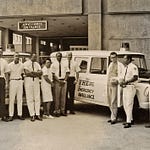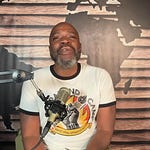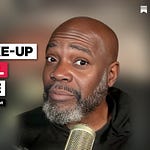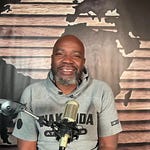This episode of “The Black One” originally aired on October 4, 2015.
Although the "anti-woke” movement is predicated on the idea that nothing existed until white people heard about it, people around the world were practicing astronomy, using the number zero and washing with soap long before white people “discovered” these civilization-changing concepts. Still, you probably remember when transgender issues were not considered part of the fight for justice and equality.
I don’t.
Nearly a decade ago, I sat down with trans activist Daronesha Duncan. To be fair, our conversation about pronouns, gender-affirming care and what it means to be “woke” took place long before America discovered trans people used the bathroom and played sports. Back then, most Americans considered trans people as rare as a dimwitted white man getting elected president.
Here’s another story, though.
Around 1583, in the Kingdom of Ndongo (present-day Angola), Princess Nzinga Mbandi was born. Despite Nzinga’s athleticism, intelligence and fearlessness (and being the king’s favorite child), Nzinga wasn’t in the royal family’s line of succession. Still, the king allowed Nzinga to train for battle with his sons, alongside the best male warriors in the land. After defeating the princes in a battle-axe competition, Nzinga was placed in charge of the armed forces.
Nzinga’s older brother still became king of Ndongo after their father’s death. But the big brother was so afraid of his warrior sibling’s battle axe and popularity, in 1617, he forced Nzinga into exile and murdered Nzinga’s newborn son.
In 1622, overwhelmed by Portuguese enslavers and forces from the rival Imbangala kingdom, Nzinga’s brother knew there was only one person who could save the Ndongo. Nzinga grabbed a battle axe, assembled an army and returned from exile. After saving the Ndongo kingdom and kicking the Imbangala’s ass, Nzinga became the new ruler. Nzinga established Ndongo as a safe haven from enslavers, so no one cared that Nzinga “dressed as a man and insisted on being referred to as king.”
In the 1640s, King Nzinga decided to “become a man.”
What does this have to do with anything?
Well, from 1618 until 1620, while Nzinga was in exile, Portuguese human traffickers teamed up with the Imbangala to raid the Ngondo for its human trafficking startup, including the “20 & odd Negroes” that ended up in the Virginia colony in 1619. …
All because people were worried about a transgender athlete.












